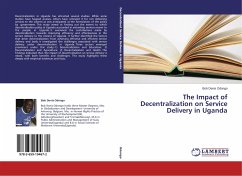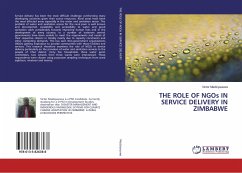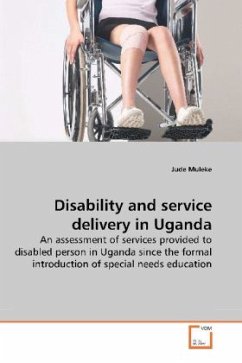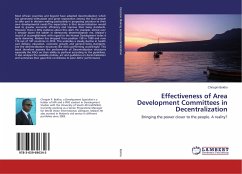
The Impact of Decentralization on Service Delivery in Uganda
Versandkostenfrei!
Versandfertig in 6-10 Tagen
36,99 €
inkl. MwSt.

PAYBACK Punkte
18 °P sammeln!
Decentralization in Uganda has attracted several studies. While some studies have heaped praises, others have criticized it for not delivering services to the citizens as was anticipated at the formulation of the policy by government. This study aimed at finding out the extent to which decentralization policy in Uganda succeeded in extending services nearer to the people in Uganda. It examined the contributions made by decentralization towards improving efficiency and effectiveness in the service delivery to the citizens of Uganda. It further identified the factors that deter decentralization ...
Decentralization in Uganda has attracted several studies. While some studies have heaped praises, others have criticized it for not delivering services to the citizens as was anticipated at the formulation of the policy by government. This study aimed at finding out the extent to which decentralization policy in Uganda succeeded in extending services nearer to the people in Uganda. It examined the contributions made by decentralization towards improving efficiency and effectiveness in the service delivery to the citizens of Uganda. It further identified the factors that deter decentralization from achieving effective and efficient service delivery and lastly it investigated the challenges associated with service delivery under decentralization in Uganda. Three sectors emerged prominent under this study:-1) Decentralization and Education; 2) Decentralization and Agriculture; 3) Decentralization and Health. The findings indicated that, the impact of decentralization on service delivery is mixed, with both benefits and challenges. This study highlights these deeply with empirical evidences and facts.












